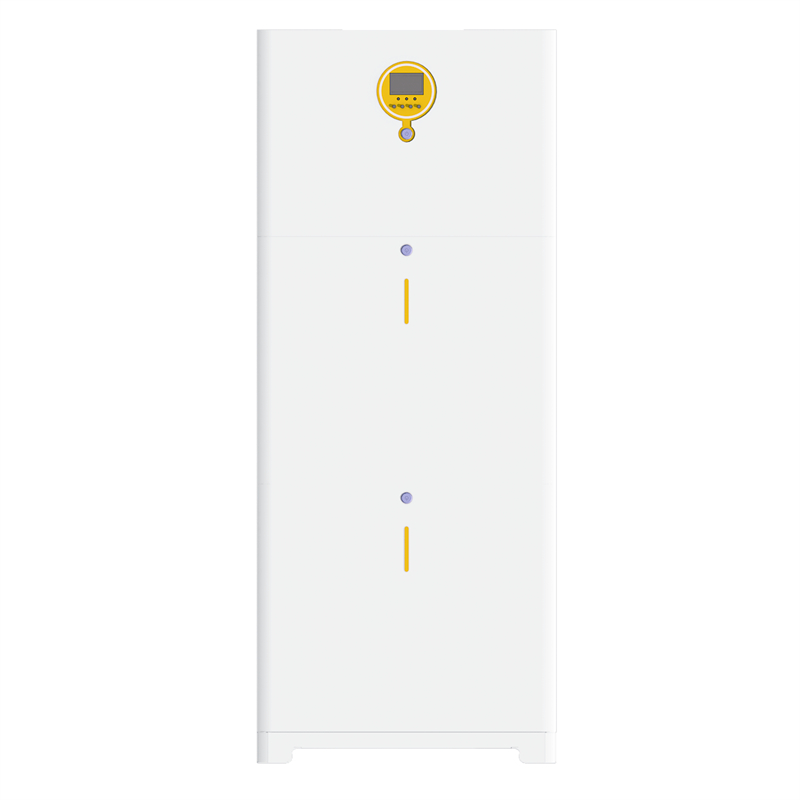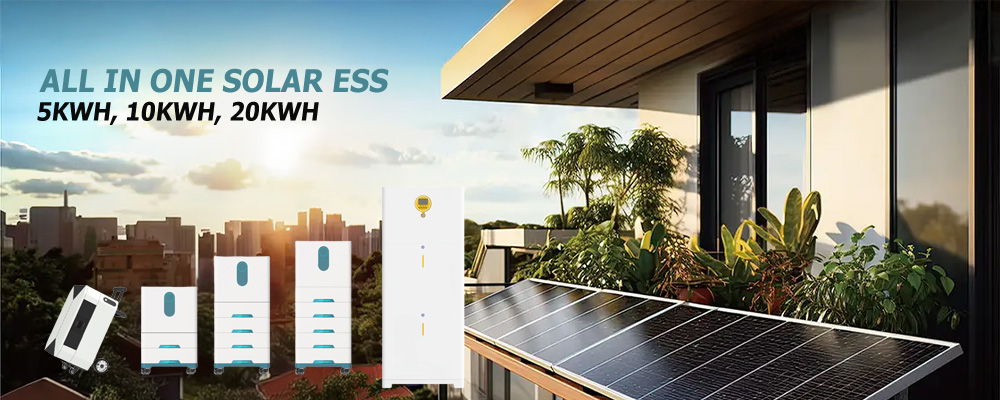Abstract:
In the energy sector, storing energy is becoming increasingly important. Whether it's to reduce electricity bills, increase energy independence, or lessen environmental impact, understanding energy storage systems is key. This article will explain the concept of Home Energy Storage in the simplest terms and explore various energy storage solutions to help you make informed decisions.
Why Consider a Home Energy Storage System?
Imagine a sunny day when your solar panels are constantly generating electricity. However, if you're not at home or when the sun goes down at night, this electricity will be wasted. This is where a Home Energy Storage System comes in. It's like an electricity "reservoir" that can store excess solar energy for you to use when you need it.
There are several key benefits to considering a home energy storage system:
Reduce Electricity Bills: By storing solar energy generated during the day, you can use it at night or during peak demand periods, reducing your reliance on the grid and lowering your electricity bills. This is especially effective in areas with time-of-use electricity rates.
Increase Energy Independence: With Home Energy Storage, you can continue to have power during grid outages, avoiding the impact of blackouts.
Support Renewable Energy: Storing solar energy allows for better utilization of renewable energy, reducing reliance on fossil fuels and contributing to environmental protection.
Increase Home Value: A complete solar + storage system can often increase the attractiveness and value of your home.
What is Home Energy Storage?
Simply put, Home Energy Storage is a device that stores electrical energy for later use. It typically consists of the following main parts:
Battery: This is the core of the energy storage system, responsible for storing electricity. Common types of home energy storage batteries include lithium-ion batteries, lead-acid batteries, etc.
Inverter: Responsible for converting the direct current (DC) from the battery into alternating current (AC) used by household appliances.
Controller: Responsible for monitoring and managing the operation of the entire energy storage system, including charging, discharging, and protection.
Monitoring System: Used to monitor the status of the energy storage system in real time, such as battery capacity and power output, making it easy for users to understand the system's operation.
How a Solar Battery Storage System Works
When your solar panels generate electricity, that electricity first meets your home's electricity needs. If there is excess electricity, it will be sent to the solar battery storage system to be stored.
When solar power generation is not sufficient to meet your electricity needs, such as at night or on cloudy days, the electricity stored in the battery will be automatically released for you to use. This way, you can maximize the use of solar energy and reduce your reliance on the grid.
A typical process is as follows:
1.Solar panels generate electricity.
2.Electricity is supplied to household use first.
3.Excess electricity is stored in the solar battery storage system.
4.When solar power generation is insufficient, the battery releases electricity to supply household use.
5.After the battery is depleted, automatically switch to grid power supply (if connected to the grid).
How to Choose the Right Home Solar Battery?
Choosing a home solar battery requires considering the following key factors:
Storage Capacity: The storage capacity of the battery determines how much electricity it can store. You need to choose the appropriate storage capacity based on your electricity consumption and solar power generation. Generally speaking, the larger the storage capacity, the more electricity can be stored, but the higher the price.
Power Output: The power output of the battery determines how many appliances it can power simultaneously. You need to choose the appropriate power output based on the power requirements of your home appliances.
Battery Type: Currently, common types of home energy storage batteries on the market include lithium-ion batteries and lead-acid batteries. Lithium-ion batteries have the advantages of high energy density, long life, and low maintenance costs, but the price is relatively high. Lead-acid batteries are cheaper, but have lower energy density, shorter lifespan, and require regular maintenance.
Lifespan: The lifespan of a battery refers to the time the battery can be used normally. Generally, the life of a battery is measured in cycles, and one cycle refers to the battery being fully charged and discharged once. You need to choose batteries with a long lifespan to reduce long-term usage costs.
Brand and Warranty: Choosing well-known brands and manufacturers that provide good warranty services can provide better product quality and after-sales guarantee.
The Price and Installation of Solar Battery for House
The price of a solar battery for house is affected by many factors, including storage capacity, power output, battery type, brand, etc. Generally speaking, the price range for home energy storage systems ranges from a few thousand dollars to tens of thousands of dollars.
In addition to the price of the battery itself, you also need to consider installation costs. Installation costs include labor costs, material costs, etc. It is recommended that you consult a professional solar installation company to obtain a detailed quote.
Before installing a home solar battery, you need to understand local policies and regulations. Some regions may offer subsidies or tax incentives for energy storage systems, which can reduce your investment costs.
Conclusion:
Home energy storage (Home Energy Storage) is an important trend in future energy development. By storing solar energy, you can reduce electricity bills, increase energy independence, support renewable energy, and contribute to environmental protection. When choosing a home energy storage system, you need to consider factors such as storage capacity, power output, battery type, lifespan, brand, and price. Hopefully this article has helped you better understand home energy storage systems and make informed decisions. Choosing the right solar battery storage system and home solar battery requires careful evaluation of your specific needs and budget, and consulting a professional solar installation company to ensure you get the best solution.



